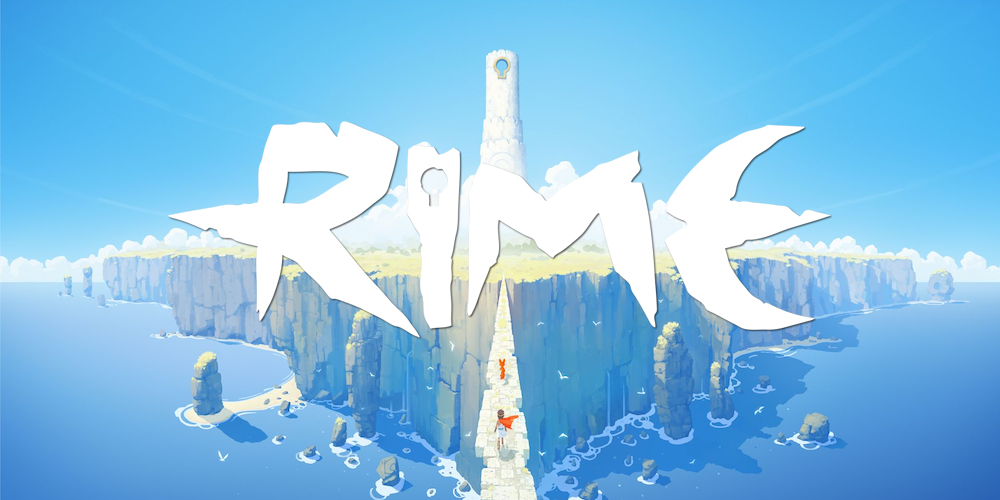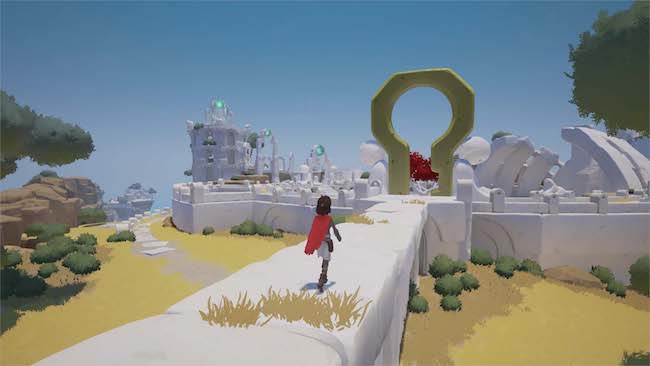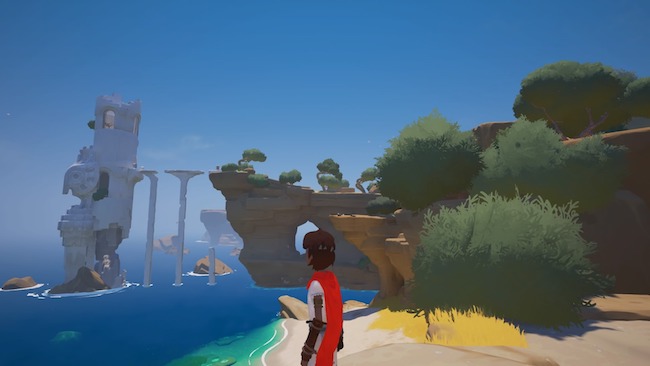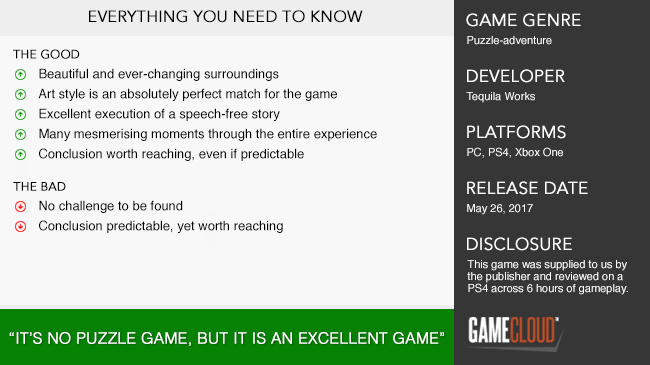
If you’ve read any review of mine before, you’d know that I am delighted whenever I get my hands on a game that defines itself as ‘puzzle-something,’ but also that I am frequently let down by these very same games. Tequila Works’ RiME was on my list from the moment I first saw its trailer a few years ago, capturing me both with the excellent visuals and the concept of what it might be. It may be predictable, but puzzle-based games about a mysterious youth lost in an unknown destination have previously been consistently excellent and with an ending worth earning.
Let me first address the largest concern I have with games like RiME, who choose the label of ‘puzzle-something.’ Obstacles that require the possession of a functioning mind to overcome existing within the world of your game do not solely qualify your game for this genre. A vast majority of games feature puzzles in some sense of the word, particularly ‘room puzzles,’ in which you must successfully execute a series of the actions around the room in order to get out; these games do not label themselves by these elements. RiME, in my opinion, is not a puzzle-adventure game, but simply an adventure game.
The puzzles featured within RiME are consistently simple and are often a direct linear chain of ‘actions’ that must be executed to get the game to progress. Sometimes these actions can take a little bit of exploration to locate, but this isn’t a challenge so much as it is straightforward searching; you find the answer once you stumble upon it, not because you ‘solved’ something. At no point in my entire journey did I hit any point where my continual forward momentum was ever held up by a moment of pondering, save for a few times where I simply got lost. This does not diminish the value that is present in RiME and is more a matter of setting the correct expectation going in. The real question to me is whether the game succeeds as an adventure game.

Luckily, this is the sudden turn in the review, as almost everything else I could say about this game is praise. The most immediately evident positive trait is clearly the chosen art style, which is a perfect match for the feel of the game and helps create both amazing vistas and valuable minute details. On looking through concept art for the game, you can really see how strongly they grasped the idea they were going for, and it comes through in loads for the overall feel of the game.
This is only enhanced by the environments, which continue to be ever-changing from start to finish. As your journey to the top of the ever-looming tower continues, your conditions shift in stark ways, which keeps interest up and makes you look around yourself in different ways. Sometimes you’ll be looking off into the distance to find the next shelter from the dangers of the desert and other times be searching every nook and cranny of a cramped and cold city. Each shift is exciting to go into, and no environment sticks around too long. The timing was precisely perfect for me.
On a smaller scale, the most special element of RiME is what I would call ‘moments.’ Independent of story or context, there are plenty of small flashes of artistry that had me captivated. This could be the corner-turn on a stunning room, or the act of wandering around a dark and precarious room lit by only your voice. RiME is full of times when I would be completely captured by it, and it can only do this due to excellent visual and audio design.

On the topic of audio, this is another title to attempt the speech-free story design, and it does so with great success. The story unfolds smoothly, from vague beginnings to a definite ending, and it achieves this with the help of the lack of speech, forcing you to take in the scenes and surroundings for what they are. The impact of the tale would only have been lessened by the inclusion of spoken dialogue, and I praise the developers for hitting the mark so well on this front.
All this said, I am incredibly torn on my opinion of the story’s conclusion, and I can’t really sufficiently explain why without spoiling the experience for the reader and potential player. Suffice to say that while I thought the ending was incredibly predictable and without any significant originality, the impact of the end is meaningful to the overall experience of the game, particularly when viewing the Level Select screen post-game. To put it best, I think the ending has an excellent effect on the tale as a whole if disappointing in practical terms.
Perhaps nit-picking now, but there are two minor issues I encountered that don’t deserve too much thought, but I couldn’t leave out of here. Quite a few of my cutscenes were unusually jumpy, and I couldn’t really work out why as they weren’t overly intricate scenes. Secondly, the controls for movement were not uniquely terrible, but the irritating system that I’ve come to expect from any game that features climbing and navigating walls. I really want someone to improve on this, but I don’t suppose it’s happening anytime soon.

I have decided that I need to stop getting my hopes up for modern cross-genre puzzle games. While we have seen some astounding showings in the past, modern titles fail to understand what it is that makes a puzzle both challenging and rewarding. While RiME is absolutely no exception to this rule, it is still a phenomenal game for the exploration experience alone. I will be playing this again someday if only to find all the little things I missed, and to see the game in the light of knowing how it all ends.











